40 Words That Didn’t Exist 40 Years Ago

It’s weird to think about, but behind every word, a decision was made about how a specific string of letters was going to refer to a certain action, object, or feeling. And while the English language already has close to a million words in it, more are being added all the time. Some get added to the dictionary, while others simply exist as universally accepted bits of everyday language. How were lexicographers in the 19th century supposed to know that we’d eventually need words like “blog,” “voicemail,” and “WiFi,” after all? Herein, we’ve rounded up some common words that have only come to exist in the last 40 years.
1
Photobomb

Originating from a 2008 entry on Urban Dictionary, and added to Merriam-Webster in 2017, “photobomb” is used to describe the moment when someone purposefully inserts themselves into a photograph the moment it’s being taken. It’s generally done as a prank, in jest—and it always ruins the shot.
2
Troll
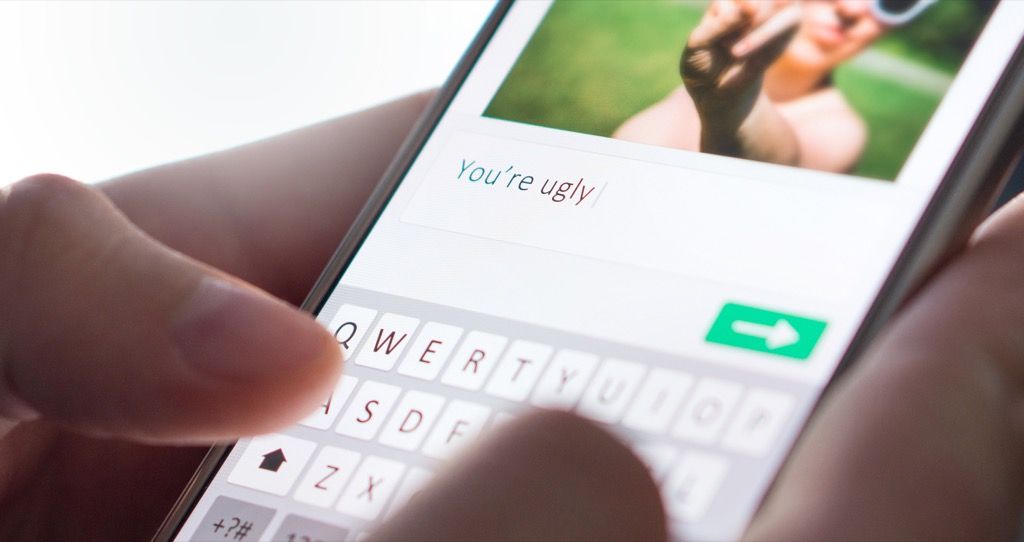
Though the word “troll” has existed in the English language for some time, it wasn’t used as internet slang until 1992, according to the Oxford English Dictionary. When used online, this slang term refers to someone who intentionally makes offensive comments with the goal of stirring up controversy.
3
Emoji
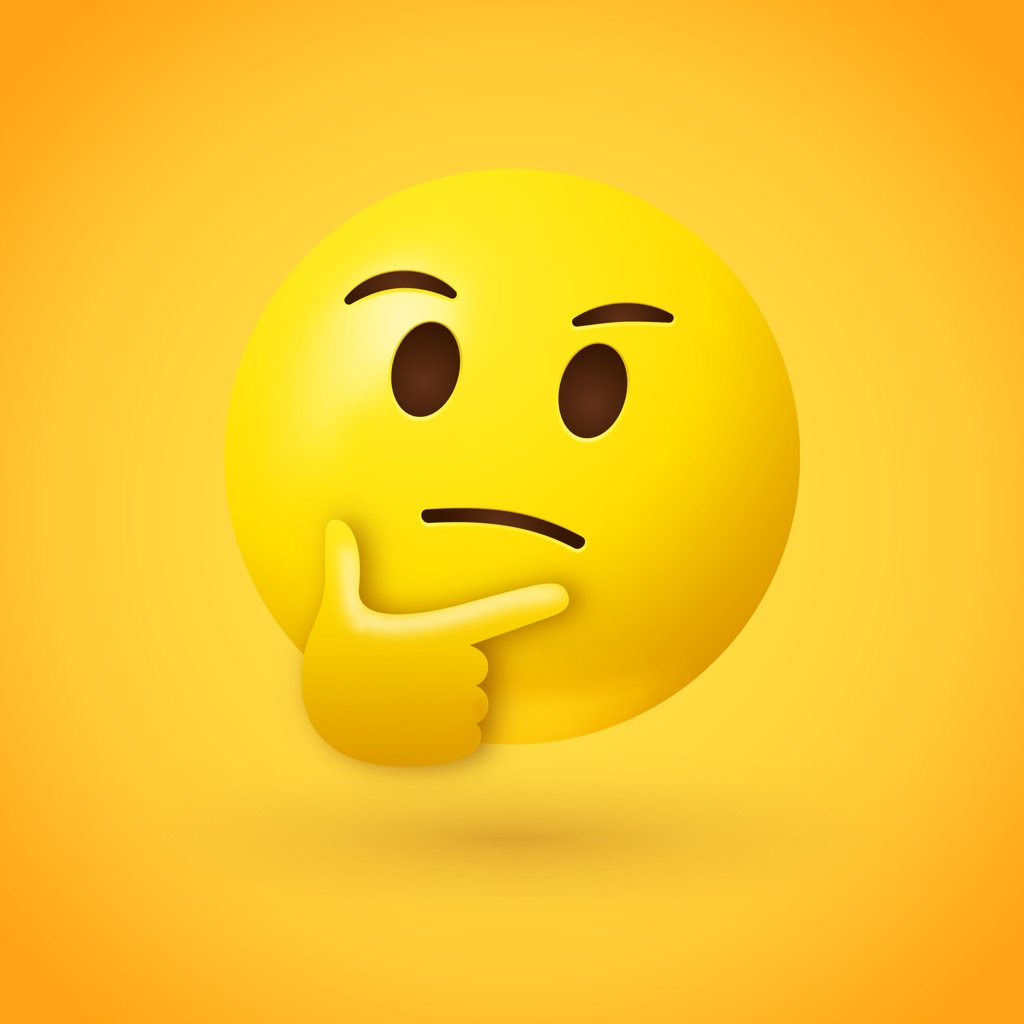
Though the word “emoji” may be now be ubiquitous term in America, but its etymology is actually Japanese. The term was coined in the ’90s, around the same time that Japanese artist Shigetaka Kurita released the world’s first set of emoji. The noun derives from the Japanese “e,” meaning “picture,” and “moji,” meaning “letter” or “character.”
4
Boop
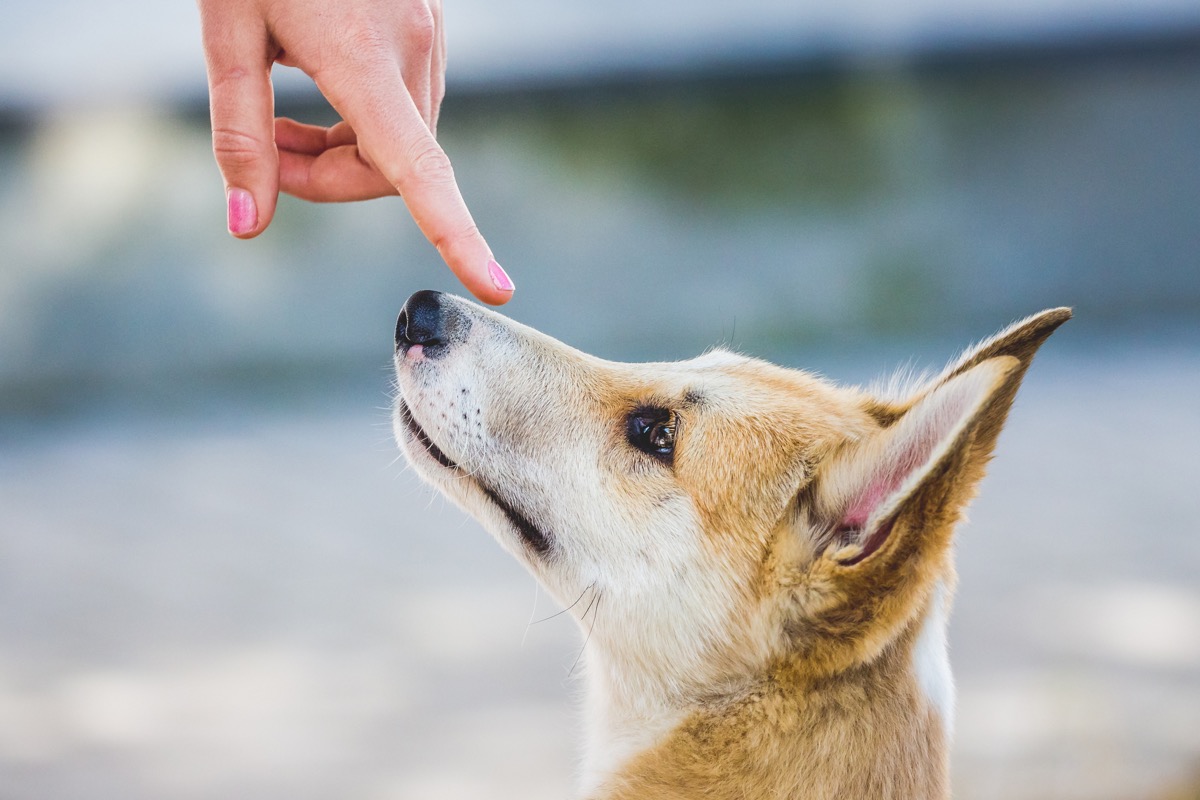
The word pops up a lot on photos of beloved pets, as it describes the noise that, well, everyone makes when they briefly touch the nose of something adorable. It wasn’t until the subreddit /r/boop was created in 2009 that it became commonly known, though the earliest example of it seems to be a 1992 Simpsons episode in which Bart places a stamp on baby Lisa’s nose before mailing her away: Boop!
5
Booyah
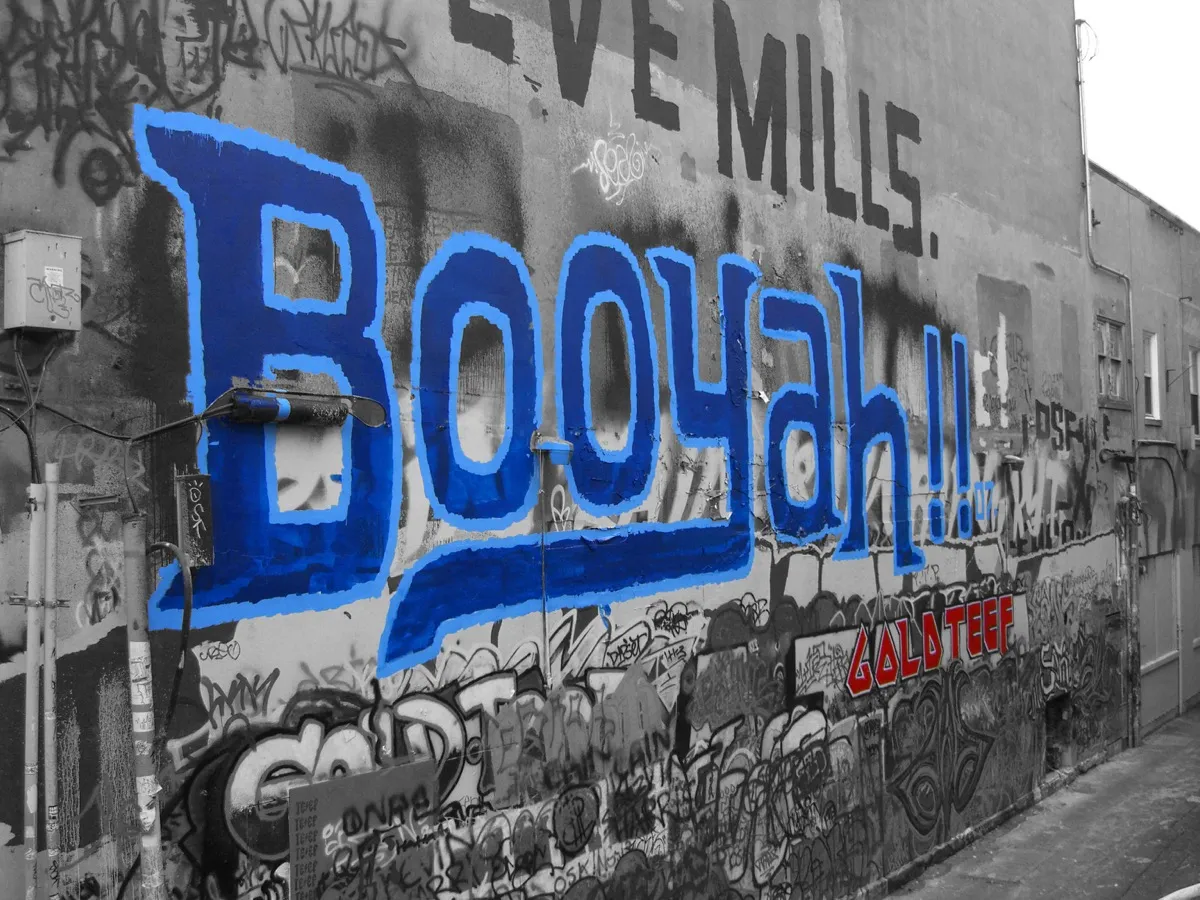
The first known use of the word “booyah”—or, less commonly, “booya” or “boo-yah”—was in 1990. And it was around that time that the late ESPN sportscaster Stuart Scott popularized the previously unknown exclamation, using it to express his joy over every touchdown, home run, or three-pointer he witnessed.
6
Foodie

Nowadays, the term “foodie” is all over social media. On Instagram alone, there are more than 140 million posts associated with the hashtag #foodie. But where does the word come from? According to etymologist Barry Popkik, the word first appeared in New York magazine back in 1980, and from there it slowly started to gain traction amongst food writers until it became part of the cultural lexicon.
7
Infomercial

The word “infomercial”—a portmanteau of “information” and “commercial”—didn’t show up in the English language until the early 1980s. It was then that the FCC eliminated certain restricting regulations that made airing long advertisements all but impossible.
8
Blog

Short for “weblog,” the word “blog” began to be used in the late 1990s in the way that it is used now: to describe a website housing a collection of writing. The creation of the word “weblog” is most commonly attributed to “weblogger” Jorn Barger, and the shortening of the term into “blog” is attributed to programmer Peter Merholz.
9
Voicemail
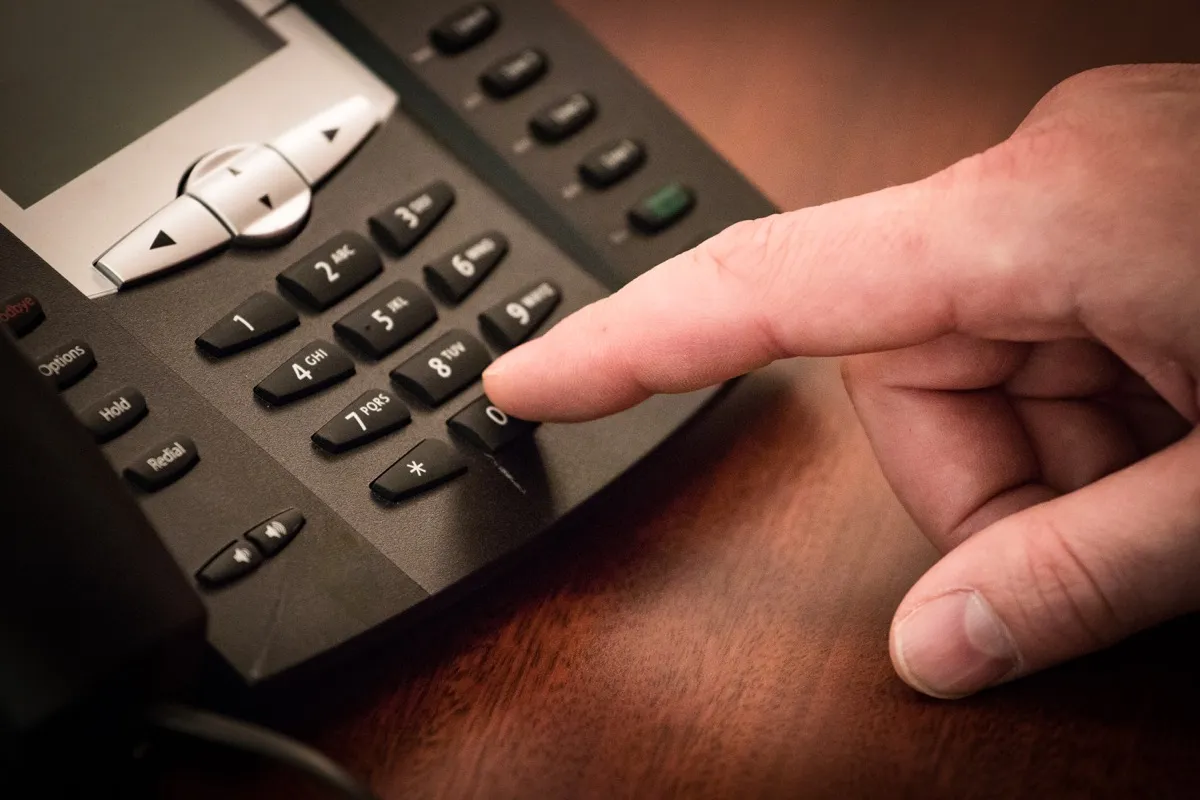
Originally the word “voicemail” was trademarked in 1981 by Televoice International to describe their machines specifically, but today it’s used to refer to any and all automated voice messaging systems.
10
Wannabe
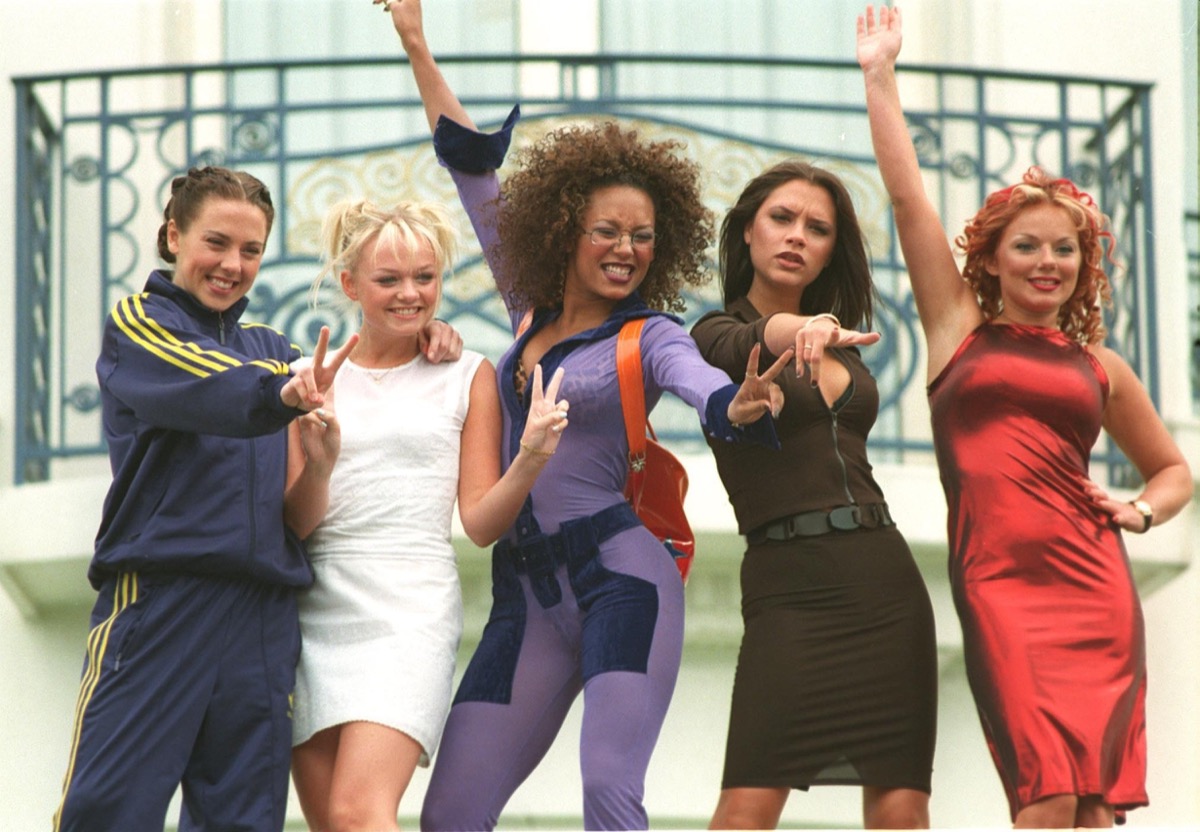
Contrary to popular belief, the word “wannabe” wasn’t actually coined by the Spice Girls. Rather, the Online Etymology Dictionary reports that the surfer slang for the phrase “want to be” was first used in 1981 and popularized a few years later when Madonna fans began to call themselves “Madonnabes.”
11
Spam

“Spam” became an integral part of internet culture in 1993 when software developer Richard Depew accidentally posted the same message some 200 times, essentially “spamming” the chat board. The word as way to describe junk email was added to the Oxford English Dictionary in 1998.
12
Unfriend
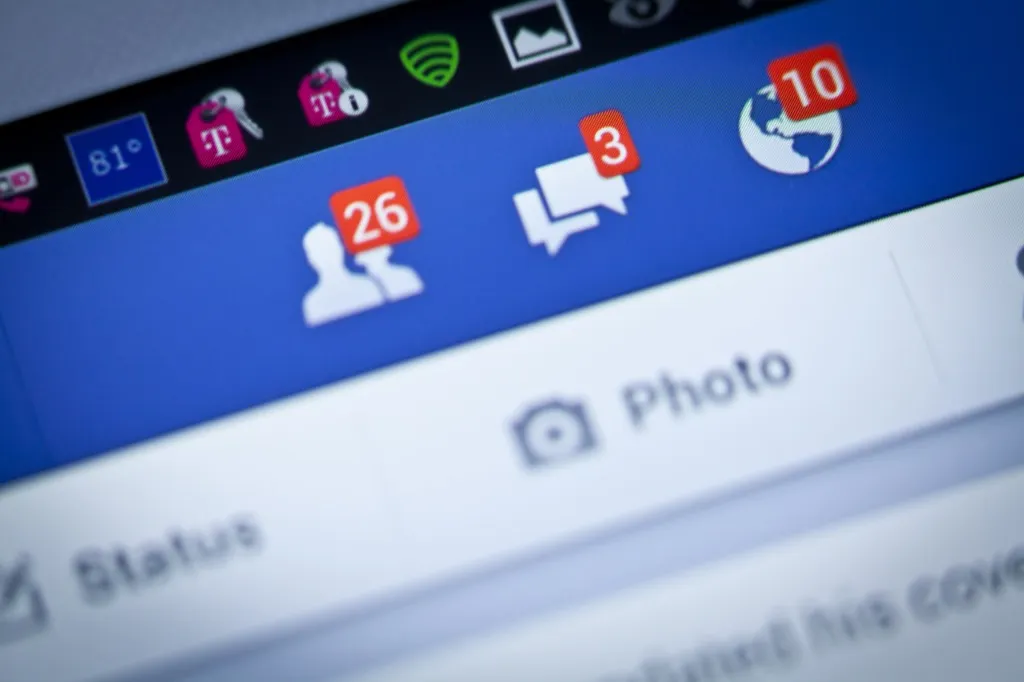
When Facebook took the internet by storm in the early 2000s, it brought with it a whole new set of words that are now part of the vernacular in America—including “unfriend,” or the action of removing someone from a list of connections on a social networking site.
13
Birther
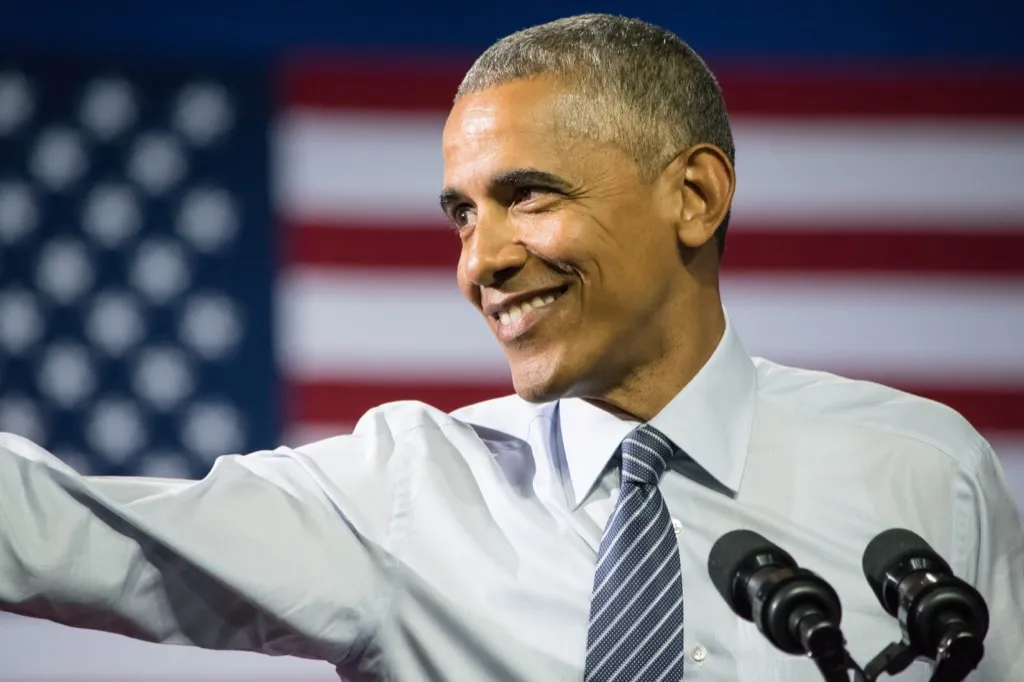
During the beginning of Barack Obama‘s presidency, the debate over whether or not he was born in the U.S was the subject of countless headlines—so much, in fact, that the term “birther” was given to people who believed it. At the time, polls indicated about a quarter of Americans doubted that he was born in the country. After releasing his “long-form” (certified) birth certificate in April 2011, a Gallup poll from May of that year found that just 13 percent of Americans doubted his birthplace.
14
WiFi
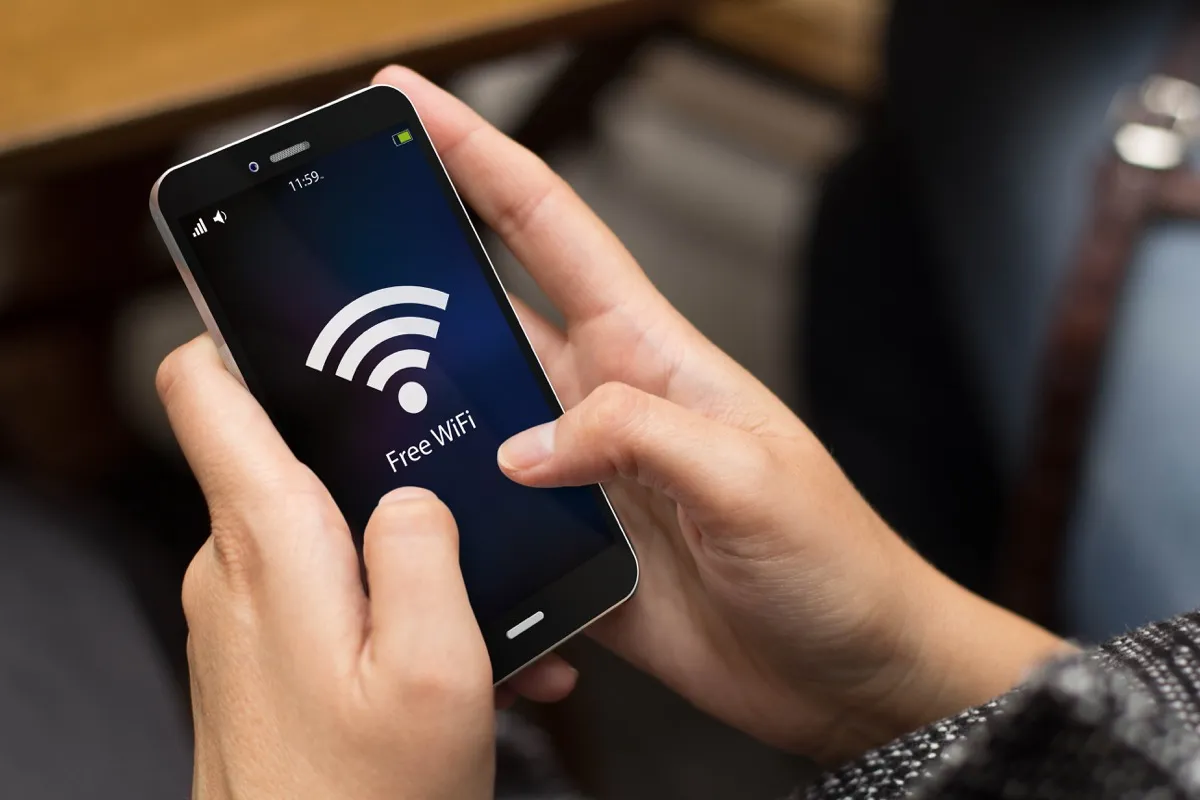
The abbreviation is sometimes incorrectly interpreted as a shortening of “wireless fidelity,” but according to Oxford Dictionaries, it stands for “wireless + an apparently arbitrary second element.”
15
Emo
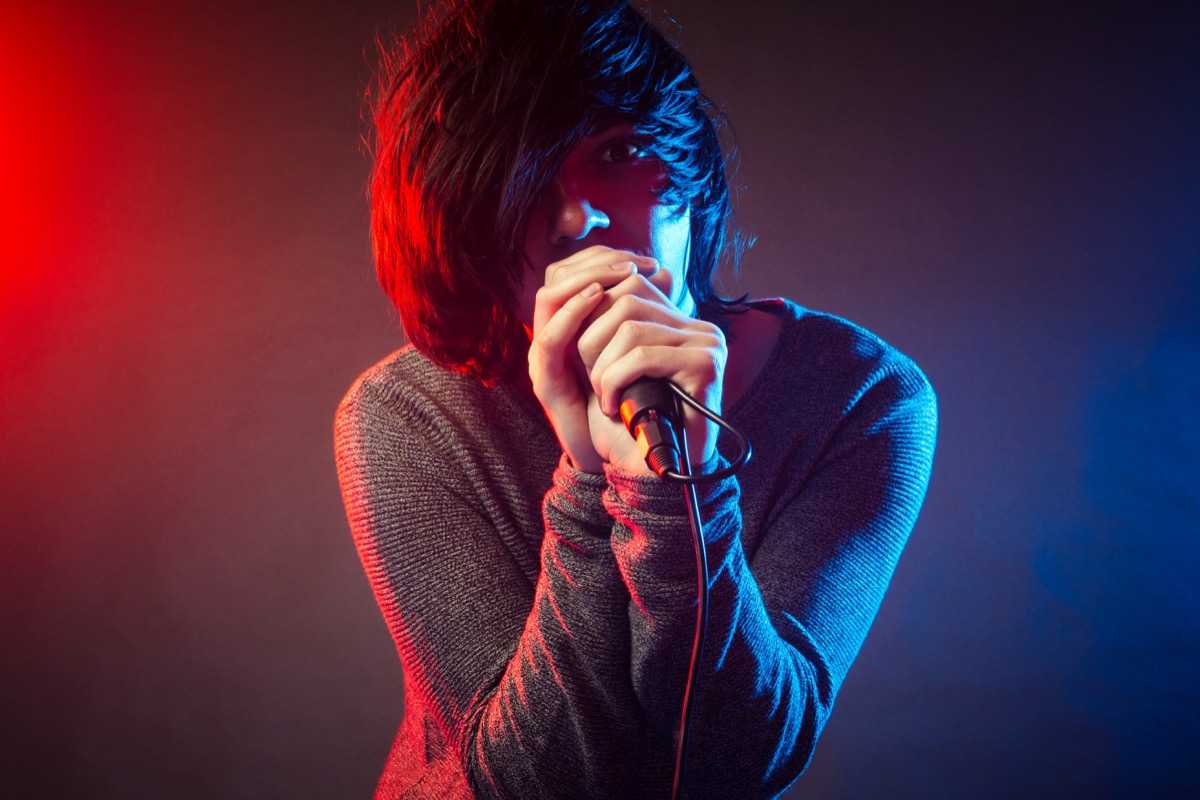
Short for “emotional,” this word from the 1980s is used primarily in the music scene to define a subset of punk music characterized by introspective or personal lyrics. In other instances, “emo” is also used as an adjective to describe the people who listen to this type of music, who are generally defined by alternative clothes and hairstyles.
16
Bingeable
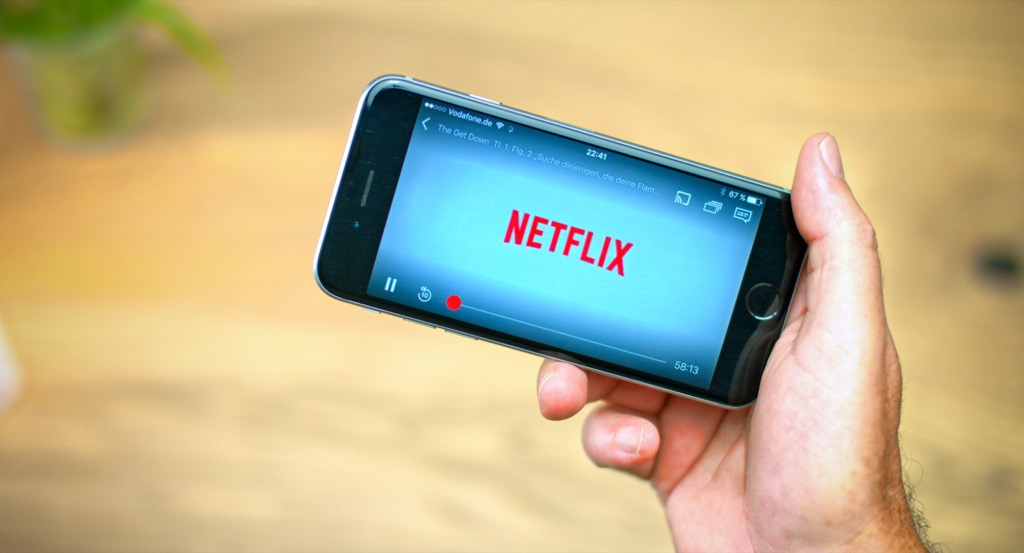
By now, everyone knows what “bingeable” means. (If you don’t, you should probably become better acquainted with your Netflix account, ASAP.) Surprisingly, the word wasn’t added to Merriam-Webster until 2018. It means, “having multiple episodes or parts that can be watched in rapid succession.”
17
Cougar

Yes, “cougar” has been a real word for centuries. After all, cougars—as in the jungle cat—have been around for ages. But it’s only been used to describe an older woman who likes to date younger men in recent years. According to The Star, “cougar” first appeared in 1999, on a now-defunct Canadian dating website called cougarsdate.com.
18
Adulting

If you’re a youngster who’s having trouble figuring out the ways of the world—how to file your taxes, how to pay your credit card bill, how to know what to do with your 401(K)—then you’re having trouble “adulting.” Popular with millennials, this word was nominated as a candidate for word of the year in 2016 by Oxford Dictionaries.
19
Stan

Eminem fans already know precisely where this word comes from. But in case you’re unfamiliar with the musings of the Detroit rapper, here’s a little history: In 2000, Eminem released a song called “Stan” about an overzealous fan, and since then, the name of the song has been used to refer to fanatics obsessed with a certain celebrity. You might see people use the word as a verb (“I stan that celebrity”) or as a noun (“she’s a huge Taylor Swift stan”). Either way, the meaning is essentially the same.
20
Jorts

Widely considered to be one of the ugliest inventions of all time, “jorts”—popular icons of the ’80s—are denim shorts mostly worn by “NASCAR afficianados [sic] and men over 40,” according to Urban Dictionary.
21
Pescatarian

According to Merriam-Webster, the portmanteau of “pesce” and “vegetarian” was created in 1991 to refer to vegetarians who also ate fish—since, technically, they aren’t vegetarians.
22
Selfie

No, Paris Hilton did not coin the word “selfie.” According to The Guardian, an unidentified drunk Australian man attempting to describe his face was the first person to use the term, back in 2002. In 2013, it was named Oxford Dictionaries international word of the year.
23
Podcast

Stemming from what was known in the 1980s as “audio blogging”, the term “podcast” describes an episodic series of digital audio files available online. Generally, the content is non-fiction in nature, and analytical in content. The updated version of the word was first made popular in 2004 by Ben Hammersley in The Guardian.
24
FOMO

An acronym that stands for “fear of missing out,” “FOMO” was first used by marketing strategist Dan Herman in 2000, according to Boston magazine.
25
Muggle

Yes, “muggle,” a term invented by J. K. Rowling to describe a person who isn’t endowed with magical abilities, is a real word. It first showed up in 1997, in Harry Potter and the Sorcerer’s Stone, and it took just five years, according to the BBC, for the Oxford English Dictionary to deem it official.
26
Shopaholic

Thanks to the boom of mall culture and development of megamalls in the ’80s, we gained heavy usage of the word “shopaholic,” and it’s still used often today. But the origin of this word dates back to 1984, from an article in the Washington Post. According to Avis Cardella in her book Spent, the article was trying to defend Princess Diana, who was “rumored to have had an excessive shopping habit,” otherwise known as being a shopaholic.
27
Flexitarian
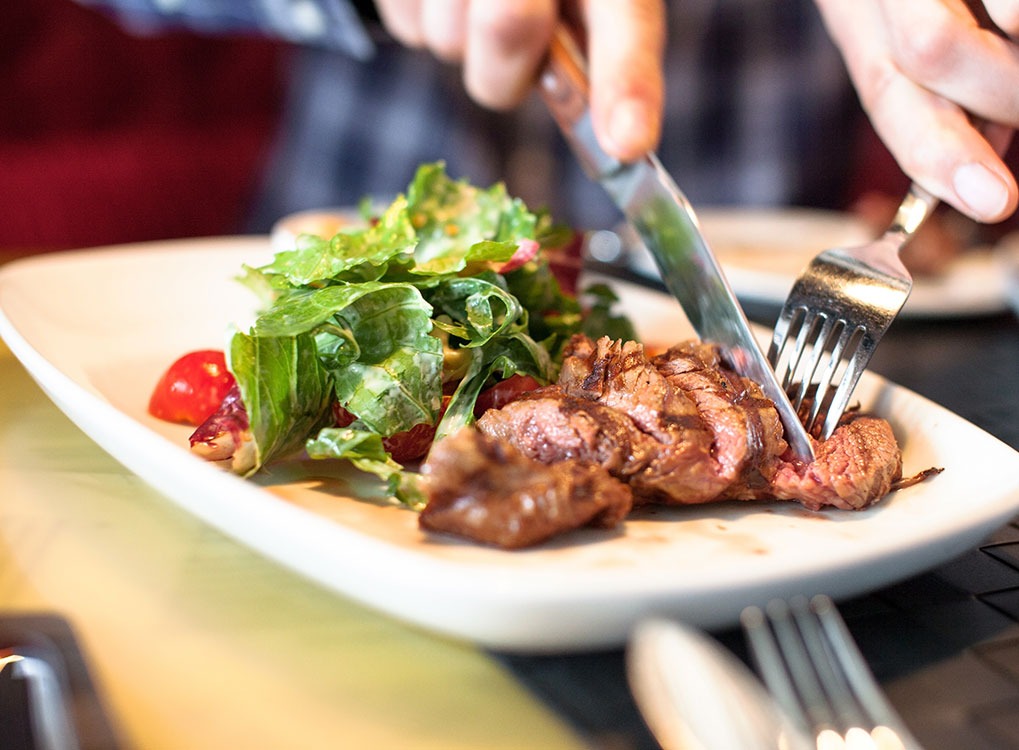
According to a 2004 article in the The New York Times, “flexitarians” are those who eat a regular diet of vegetables but include other sources of protein, like meat, in moderation.
28
Crunk

First coined by the hip hop music scene in the South in the 1990s, “crunk” is a genre characterized by “repetitive chants and rapid dance rhythms.” Decades later, it’s picked up a double meaning: to be crazy and drunk simultaneously.
29
Bougie

A modern take on “bourgeois,” the word “bougie” means “marked by a concern for wealth, possessions, and respectability,” according to Merriam-Webster when they added it to the dictionary in 2018.
30
Props

Since the 1990s, “props” has meant nearly the same thing as “respect”—only it’s used as a plural noun. One is not just given props. One must earn them. And no, one cannot get just a single prop. That’s not a thing—at least in this use of the term.
31
Lit

While using the word “lit” as a slang term for “drunk,” has been a thing for over 100 years, starting around 2004, the word has taken on a new meaning to describe something that is fun or exciting.
32
Upcycling

Reusing discarded items to create new ones, or “upcycling,” has become incredibly popular in the past few decades. This Marie Kondo-approved form of recycling was first coined by William McDonough and Michael Braungart in their 2002 book Cradle to Cradle: The Way we Make Things.
33
Showmance

If you’re a fan of television, then it’s likely that you’ve rooted for at least one “showmance“—or relationship between two members of the cast on a television series, a film, or a play.
34
Yaas

Further emphasized by the number of “a’s” that you insert into it, the word “yaas” is used as a strong expression of excitement or approval. “Yas” is slight approval. “Yaaas” is intense approval. “Yaaaaaaaaaaaaaaaaaaaaaaaas” is, well, honestly, probably overkill.
35
Turnt

First gaining mass attention on Twitter in 2008, being “turnt” means to be extremely excited, wild, and, um, drunk. It can refer to a singular person, a group of people, or even a particular environment, like a party or a bar.
36
Sus

Derived from its root word “suspect,” “sus” is a term generally used to describe something “shady or questionable.” “He only texts you after midnight? That’s sus.”
37
Trill

Coming from the combination of the words “true” and “real,” “trill” is used to describe someone who is considered to be “authentic” or “genuine.”
38
Dope

Back in the 19th century, “dope” was used as a noun for someone who might be—to put it politely—a bit slow on the uptake. Such usage quickly died out. But in 1981, according to the Merriam-Webster, it was revived as an adjective, meant to describe something positively excellent.
39
Malware

Malicious software has been around pretty much since computers were invented, however it wasn’t until 1990 that the term “malware” was coined to describe various types of threatening computer code.
40
Inbox

The word “inbox” came to be in the 1950s in reference to a tray or basket used to house physical pieces of mail, but it wasn’t until the age of the internet that it was also used to refer to e-folders that house virtual mail.